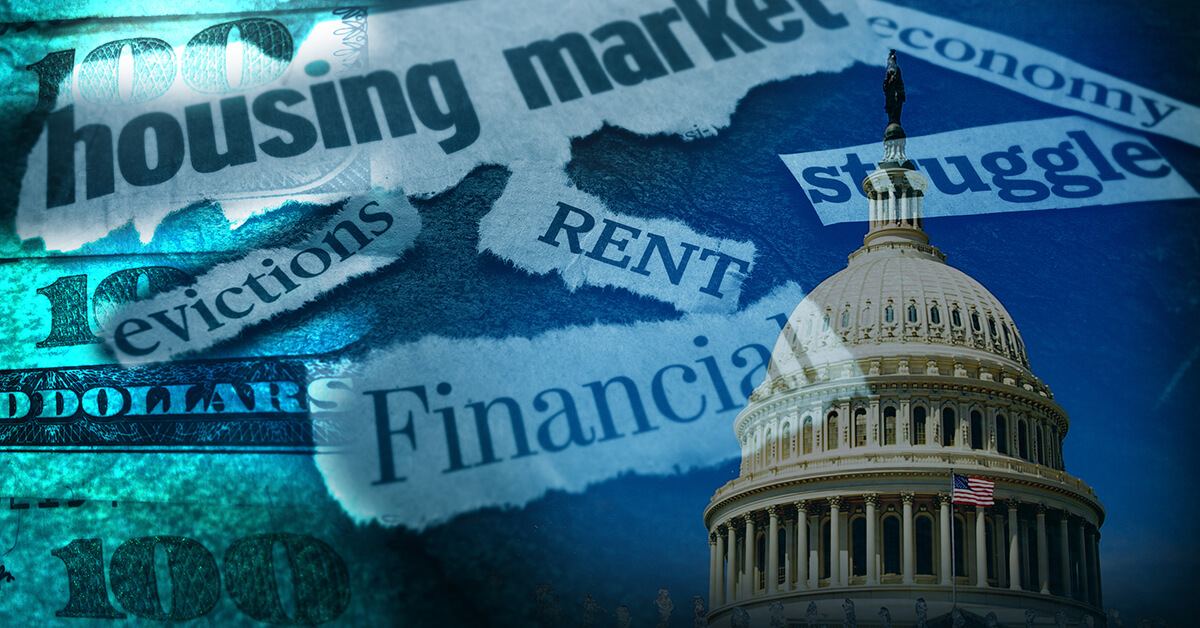
CDC eviction moratorium may cause unintended consequences for economy
Stopgap measure could hurt property owners now, renters later, creating an economic crisis
Another eviction moratorium has been put in place, through the end of 2020, and although it was designed to help renters, it may be causing more harm than it is worth.
This one came from an unexpected government agency –the Center for Disease Control and Prevention (CDC) declared a temporary halt to residential evictions. This was done for a health and safety reason – which is the purview of the CDC – as it was being offered as a preventative to the continued spread of COVID-19.
But with its wide inclusion – covering approximately 95 percent of renters in America – it could have an unanticipated adverse effect on the American real estate market and even the U.S. economy.
The CDC moratorium applies to all residential housing and to all renters who self-certify by meeting four criteria:
- Make less than $99,000 annually (if single) or less than $198,000 annually (if married).
- Have made efforts to secure other forms of rental assistance.
- Are unable to pay rent in-full due to a loss of income (hours or wages), having been laid off or furloughed, or having extraordinary out-of-pocket medical expenses that do not have to be related to COVID-19.
- Would likely become homeless or have to share a residence with others in close quarters to avoid homelessness, if evicted.
A renter who submits an attestation to these items my not be evicted for failure to pay rent through the end of the year.
However, other violations of the signed lease agreement can still lead to an eviction.
This does not release residents from their financial obligation to pay the rent and simply defers when the money is due. And although it still allows landlords to assess late fees, if necessary, it doesn’t go far enough to protect property owners, or small business landlords, who still have to pay the mortgage and taxes for these properties without the income generated that usually provides for such payments.
And while the U.S. House of Representatives passed the HEROES Act, which includes a significant amount of rental assistance, this new moratorium by the CDC covers a much larger swath of renters.
Jeopardizing the housing providers financially, although unintentional, can lead to a wildly devastating impact on the economy.
Although housing markets are strong today, a lack of federal rental assistance that supports both renters and landlords can lead to a crisis once evictions are allowed to proceed again in 2021.
Either renters will be backlogged with the money they owe the landlords and won’t be able to afford it (and will end up out on the street), or the landlords won’t be able to financially sustain their properties, leading to disrepair and even potential foreclosure of the property altogether, which is a lose/lose for both the landlord and the tenant.
An eviction crisis can be both significant and disruptive. While it is assumed that large property management companies manage most of the rental properties in America, according to the National Association of REALTORS® (NAR) more than 40 percent are owned by small business owners or are “mom and pop” investment opportunities where the owners are operating on very slim profit margins.
NAR data indicated an additional 37 percent are categorized as either an LLC, LP or LLP, many of which are operated by individuals who will also be negatively impacted because they rely on the rental income not just to pay the bills on the property, but also to cover their own necessities, such as housing, food and medical expenses.
What is a health crisis in 2020 could well manifest itself as a housing crisis in 2021.
The solution rests in the hands of legislators, as rental assistance is necessary for both renters and housing providers.
There’s no doubt that this rent crisis is burgeoning. According to the National Multifamily Housing Council (NMHC), only 76.4% of U.S. apartment households had made a full or partial rent payment by Sept. 6, the lowest level since the beginning of the coronavirus pandemic.
This is down from 79.3% as of Aug. 6 and follows the stoppage of the additional $600 monthly insurance payments that was being paid to unemployed individuals.
“Falling rent payments mean that apartment owners and operators will increasingly have difficulty meeting their mortgages, paying their taxes and utilities and meeting payroll,” NMHC President Doug Bibby said in a statement, basically calling the moratorium a Band-Aid.
“[It] did nothing to help renters or alleviate the financial distress they are facing,” he said. “Federal policymakers would have been better advised to continue to provide support as they successfully did through the CARES Act.”
Both the NMHC and NAR believe a new emergency rental assistance program created by Congress is needed to address these challenges.
The HEROES act was likely just an ambitious start by the House that doesn’t go far enough to address the number of renters who will be covered by the CDC notice.
And to prevent the negative impacts outlined above, Congress is likely going to have to do truly something heroic to address the rental assistance conundrum.
Time to Focus on Affordable Housing
Taxes on real estate are not the answer. Sign the petition calling on Congress to address our country’s housing shortage.





